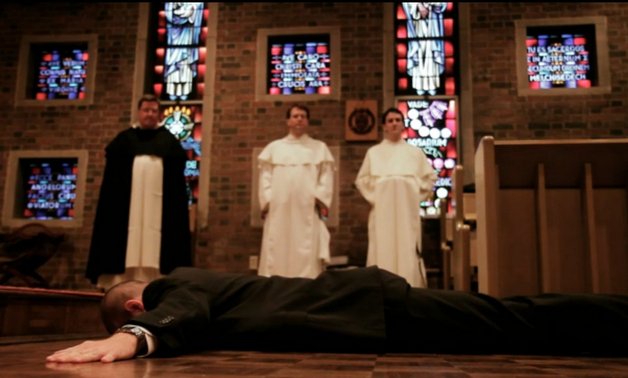There’s been a lot of buzz on the internet about a recent name change: an Olympian who used to go by “Bruce Jenner” has very publicly adopted a new name, “Caitlyn Jenner.”
I can somewhat relate. A little less than two years ago I started going by a new name and title, “Brother Hyacinth” (which in English, unfortunately, isn’t typically a man’s name). And I also started wearing a garment that looks very much like a dress. I refer, of course, to the ceremony called vestition, in which a novice receives the habit and a new religious name.
There are a host of reasons that a friar may receive a religious name different from his baptismal name. He has undertaken a life that radically lives St. Paul’s admonition to “put off your old nature which belongs to your former manner of life and is corrupt through deceitful lusts, and be renewed in the spirit of your minds, and put on the new nature, created after the likeness of God in true righteousness and holiness” (Eph 4:22-24). A new “nature” is symbolized by a new name, a process which is exemplified in Scripture again and again. Abram was blessed by God with a special covenant and promise, and became Abraham. Simon received the revelation from the Father that Jesus was the Christ, and became Peter. For a friar, sister, monk, or nun, a religious name signifies a particular consecration to God. The Second Vatican Council’s Lumen Gentium states that his whole life is offered that he “may be capable of deriving more abundant fruit from [his] baptismal grace” by which he died to sin and was remade in God’s likeness (LG 44). In each case it is God’s action that bestows a new “nature.” For every Christian it is Baptism by which they are remade; religious live out that refashioning in a radical way.
But nobody would remake something unless it was broken. And we are, all of us. There is in every human heart a wound, a desire for happiness, permanence, peace that we cannot seem to find. We might spend our lives in the search, but more often today we spend our lives distracting ourselves from the question: “distracting from distraction by distraction.” When we do search we discover that what we long for is infinite and the world is only finite; we realize that there is nothing on this earth that is able to heal the human heart because, as Chesterton said, “man is only sad because he is not a beast, but a broken god.”
I think that Jenner felt this wound, recognized that something is wrong, and tried to fix it. But we are broken beyond our own ability to repair. There is no technology or philosophy, sociology or psychology, political order or lifestyle choice, no surgery that can heal us; these are only tape on a shattered pot. And when the shattered pot still fails to hold water, all we have done is left a messy residue on the pieces.
We cannot remake ourselves as we so choose; Bruce cannot make himself “Caitlyn.” Instead, we must be remade by the One who made us. To attempt our own remaking would ignore the wisdom of the Psalmist who sings, “unless the Lord builds the house, those who build it labor in vain” (Psalm 127:1). It would ignore the understanding of Isaiah, who says, “Woe to him who strives with his Maker, an earthen vessel with the potter! Does the clay say to him who fashions it, `What are you making’? or `Your work has no handles’?” (Isa 45:9). God’s activity in our lives develops and does not deny the human nature He has given us; grace perfects nature.
Ultimately it is God’s grace alone that can heal our fallen and broken condition, and in order to be healed we must be receptive to that grace. Everything we have, even our very selves, is a gift from God (see 1 Cor 4:7), and gifts are chosen by the giver. By his choice the giver shows his love for the recipient; God is our greatest lover and we have nothing to fear from Him. Our position is not to choose, but to humbly receive and accept His gifts.
In vestition this position of receptivity is acted out in a particularly powerful way. The novice does not choose his own name; it is given to him by his novice master, albeit usually following some discussion. A novice doesn’t even know his new name going into vestition — he finds out with the rest of the community when it is announced, “In the Order you will be called Brother Hyacinth.”
So it isn’t quite right to say “call me Hyacinth;” that is too self-determinative, active, imperious. Better to say “I have been named Brother Hyacinth,” perhaps with the unspoken addendum “St. Hyacinth, pray for us to God.”
✠
Image: Dominican Vestition, 2010







